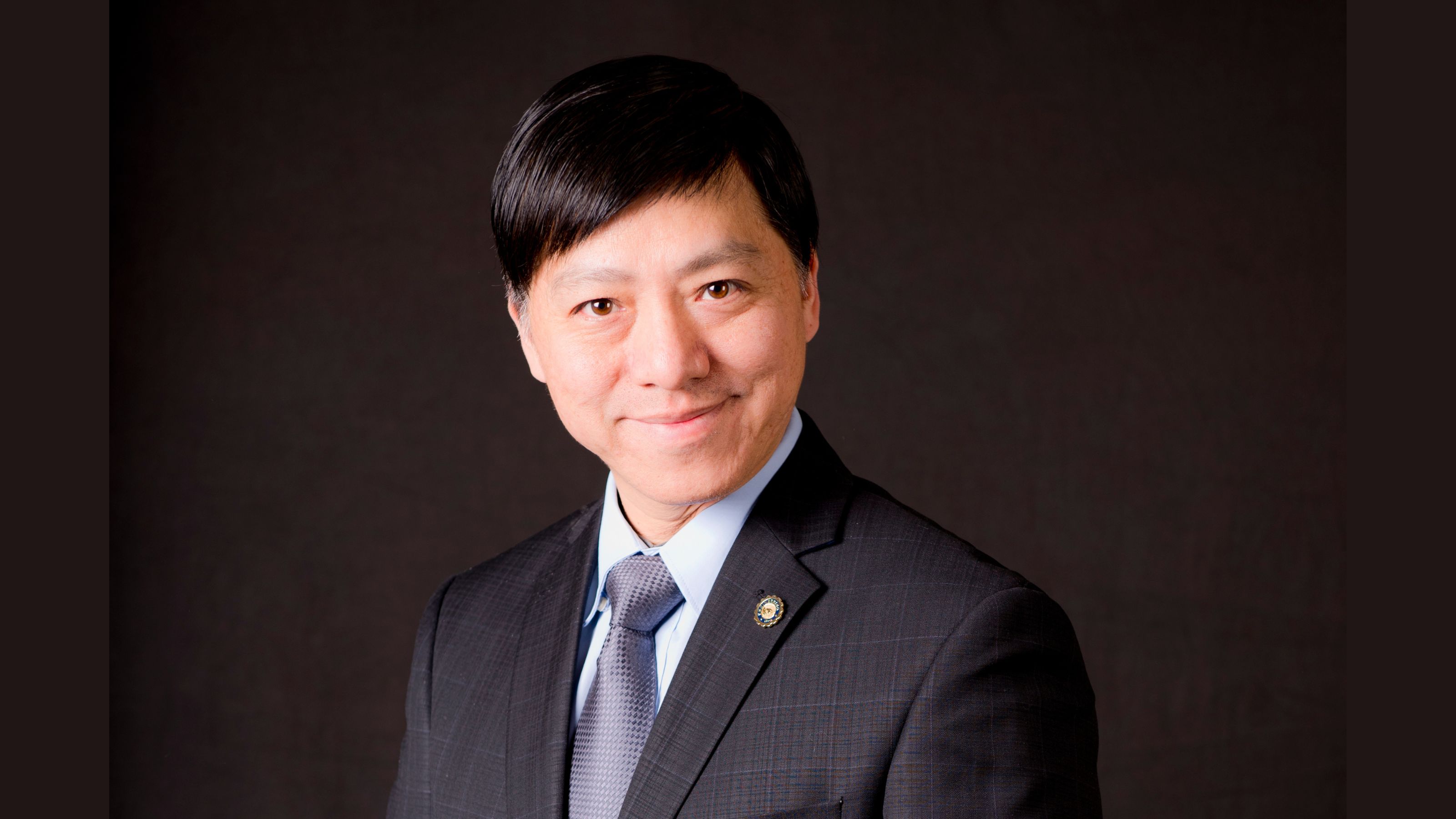Edmond Lou, a professor in the Department of Electrical and Computer Engineering in the Faculty of Engineering in the College of Natural and Applied Sciences, embraces an interdisciplinary approach to solving complex problems.
In this week’s spotlight, Dr. Lou invites us to reimagine what safer, more effective treatment methods could be for both patients and health providers.
How do you describe your work to people who don’t work in your field?
One of my works is to apply ultrasound and artificial intelligence (AI) to diagnose, monitor and predict progression in children who have idiopathic scoliosis. Scoliosis is a three-dimensional spinal curvature and approximately 3% of children have scoliosis.
What’s one big problem you want to solve through your work?
Finding out how we can use better technologies and imaging methods to reduce exposing children to ionizing radiation?
What does the word “innovation” mean to you?
To me, innovation is a novel process or method or tool which can help people to solve problems better, faster and more efficiently.
What’s been your biggest a-ha moment — in life or work — so far?
There are many, but the most influential discovery occurred when I was a PhD student at the University of Alberta. I developed a novel biofeedback system to treat children with mild scoliosis. I received my first US patent and set up my first company based on that device in Canada.
How do you or your team come up with your best ideas?
The best ideas come up when the Edmonton Scoliosis team, which includes orthopedic surgeons, a nurse practitioner, a physical therapist, orthotists, faculty members, a research coordinator and engineers, meet and share ideas at our regular weekly meeting. Some of us have been attending this meeting for many years. The interdisciplinary experiences and knowledge from a group of smart people lead us to have smart ideas to solve hard problems.
What’s your favourite thing about working at the U of A?
The U of A is an outstanding place for discovery, innovation and meeting people. The support from the local community and the government allows us to establish a world-class research facility, an Artificial Intelligence Supercomputing Hub – now called ISAIC (Industry Sandbox & AI Computing), to perform all kinds of AI projects which can help different types of patients. I am also amazed at the breadth of research that is being done at the U of A!
How does your work, your contributions to innovation help you lead with purpose?
My goal is to use my knowledge and work to help and treat patients better. As a research lead for the Edmonton Scoliosis team at the U of A, I will continue to develop better tools to help clinicians so that they can provide a safer and more effective way to treat children with scoliosis.
What’s next for you? Do you have any new projects on the horizon?
I have a broad range of fundamental engineering research interests including low power embedded systems, sensors, wireless communications, image and signal processing, and AI. Currently, my new project on the horizon involves developing an affordable point of care ultrasound system combined with AI to provide a safe imaging method to diagnose and monitor scoliosis. A novel bone quality extraction information will allow us to predict the risk of progression of scoliosis accurately. With the development of deep learning tools using artificial intelligence, we will be able to measure the spinal deformity parameters from both x-ray and ultrasound images automatically, reliably and accurately.

About Edmond
Dr. Edmond Lou is a professor in the Department of Electrical and Computer Engineering at the University of Alberta. Prior, he was a research team lead with Alberta Health Services and was appointed as a special continuing assistant professor in the Department of Surgery at the University of Alberta.
Dr. Lou serves as an editorial board for the Frontiers in Rehabilitation Sciences Journal and is the principal investigator of ISAIC at the U of A. He is a member of The International Research Society of Spinal Deformities, The Institute of Electrical and Electronic Engineers, and an associate fellow of the Scoliosis Research Society.
Dr. Lou has published over 140 refereed journal articles, 180 conference proceeding papers and 7 patents. He recently received the Graduate Student Supervisor Award at the U of A in 2022.
Find Dr. Lou on ORCID.
This conversation has been edited for brevity and clarity.
Innovator Spotlight is a series that introduces you to a faculty or staff member whose big ideas are making a big difference.
Do you know someone who’s breaking boundaries at the U of A? (Maybe it’s you!) We’re interested in hearing from people who are creating new solutions to make our world better. We want to feature people working across all disciplines, whether they’re championing bold ways of thinking, driving discovery or translating insights from the lab into the market.
Get in touch at blog@ualberta.ca.
